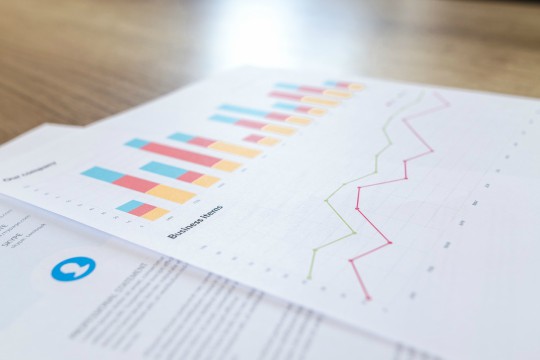By now you are probably already aware of the common things, that can affect a credit report. Those might be the debts you hold, payments you have made, personal identifying details, etc. Hard inquiries, that are generated every time you fill out a loan application form, have an effect as well.
But even if you are aware of the common factors, some less well-known things can surprise you. Even if you are sure that your credit history is good, check your reports every year to diminish the items that can affect it.
14 Things That Can End Up on Your Credit Report

1. Hard Inquiries from Service Providers
As a rule, these inquiries happen when you apply for a loan and the prospective lender checks your credit score. Landlords, cable, utility, and phone providers sometimes perform credit checks as well.
It has a negative impact on your credit history. Before signing up, check if a service will be pulling your credit.
2. Accounts You Do Not Own
Accounts that don’t belong to you can also end up on your credit report. Sometimes such accounts are errors. The account holder might be the person with the same name. Or it can be an identity thief opening accounts in your name. This is why it is a good idea to check whether all the accounts actually belong to you. You can file a dispute if some of them are not yours.
3. Forgotten Debts
This item is unexpected because you might’ve forgotten about it. Sometimes a debt can reflect on your credit report in a couple of months. Or in case you have moved and the company does not send letters and notification to the new address.
4. Accounts You Have Repaid
If you have already repaid the account, you might think that the debt is removed from your credit report. However, such debts can be on the credit report for up to 7 years. And they can keep damaging your credit score.
5. Parking Tickets
If you do not pay for a parking ticket in time, your city will probably send it to debt collections. These collection accounts will stay on your credit report for 7 years.
6. Medical Bills
If you used a credit card to pay for medical debts, it can directly impact your credit. Indirect impact is possible if you do not pay bills.
Health care providers also send these bills to the collection in 90-180 days. According to Consumer Financial Protection Bureau, in 2014 at 43 million Americans had medical debts.
7. Repaying a Loan
Two main types of loans are installment and revolving loans. Credit scoring models will reward you if you manage them responsibly. If you have only one installment loan (like an auto loan), your credit score can be damaged slightly.
Your credit utilization rate can be also badly affected by closing a loan if the loan balances are high.
8. Closing a Credit Card
Because of the credit utilization rate, you can hurt your credit score by closing a credit card. It seems to be a good move to close the card you do not need, but if another credit card almost reaches its limit, a credit score can go down.
9. Applying for an Insurance Policy
You know the loan and credit card applications are credit inquiries. If you apply for too many at the same time, it can look dangerous to a creditor. Insurance companies can also be classified as a hard inquiry.
10. Avoiding Taxes
Your tax payment records are not reported directly to the credit bureaus. However, if you do not pay for Uncle Sam’s annual bill(s) for a long time, it can damage your credit score badly.
11. Forgetting about the Rent
On-time rental payments will not damage your score for the longest stretch. But several years ago, the industry of credit reporting started including some versions of rental data to your credit report. Even if your service provider or lender does not take these data into account, the rental payment you have missed can end up in collections.
When you apply for a lease, a landlord creates a special credit report version. If you miss the rent, you can even lose your apartment, though a traditional credit score won’t change.
12. Old Gym Membership
A gym membership you did not pay for in time can also be in collections. Do not forget to close the account when you stop visiting the gym. If you have used credit debit card to auto-pay and now close it, it will not solve the problem.
13. Bank Overdrafts
Traditional credit reports do not include checking and saving information about your account. But you can hurt your credit if you choose overdraft protection connected to a line of credit.
14. Asking for a Credit Limit Increase
If you request your lender to change the terms and conditions of the credit card (to lower the annual percentage rate or increase a credit limit), the issuer will surely conduct a credit check. A hard inquiry will occur and it will make your credit score go down.
Author Bio: Ann Mosley is Finance Enthusiast who works at findlender. She enjoys learning new money management tendencies and eagerly shares her ideas with other specialists and her readers.















